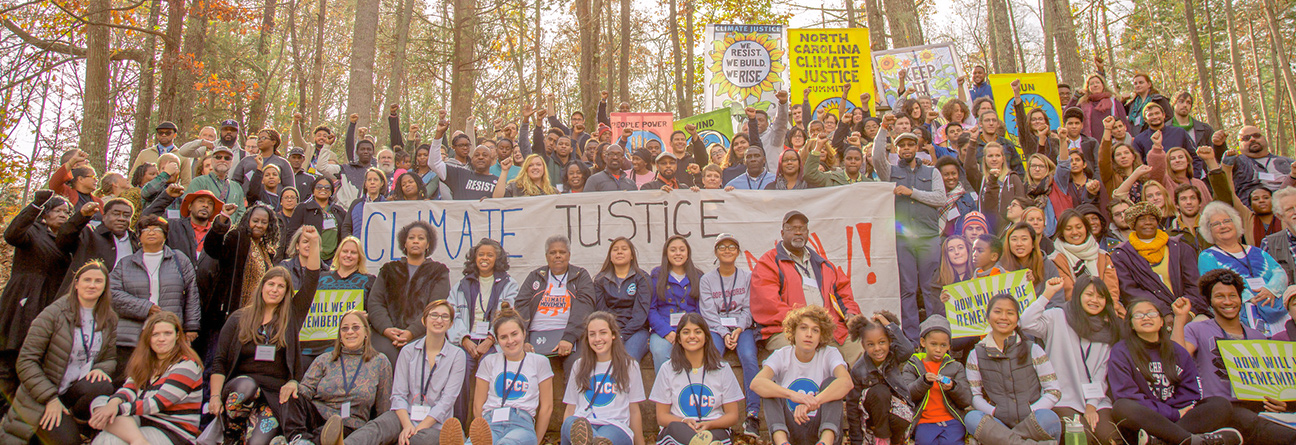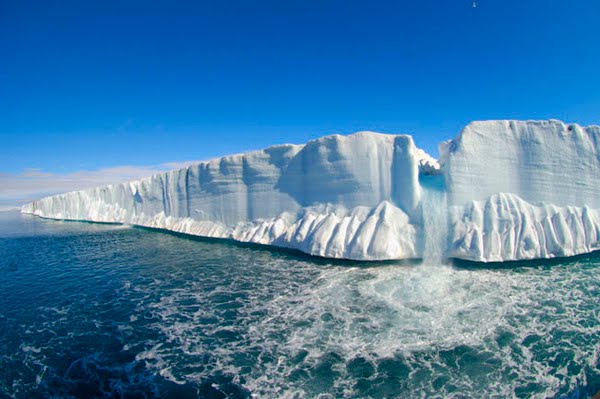Ask ACE: Why Does Warming Happen Faster at the Poles?
Rebecca Anderson
|May 31, 2012

This is a post in our new blog series “Ask ACE.” Got a question for Reb,our Team Scientist? Shoot her an email at [email protected].
Hi,
My students asked me a question I am not sure how to answer: if the sun is strongest at the equator, why is the globe warming more rapidly at the poles?
Thanks,
Judy
Hi Judy,
Great question. There are a few reasons that the Arctic is warming up at twice the global average. Specifically, it’s the Arctic, NOT Antarctica that’s warming so fast.
 1. The main reason is because of the positive feedbacks from melting sea ice and snow and ice on land. Sea ice is the bigger factor, because it covers such a large extent of the Arctic. When it melts, it reveals dark ocean water, which absorbs heat instead of reflecting it, as the ice does. This added heat warms both the air and the water and then melts more ice, which then exposes more dark water… you see how this works. You can check out the difference in the extent of Arctic sea ice in several visualizations from NASA between 1979 and 2007 here.
1. The main reason is because of the positive feedbacks from melting sea ice and snow and ice on land. Sea ice is the bigger factor, because it covers such a large extent of the Arctic. When it melts, it reveals dark ocean water, which absorbs heat instead of reflecting it, as the ice does. This added heat warms both the air and the water and then melts more ice, which then exposes more dark water… you see how this works. You can check out the difference in the extent of Arctic sea ice in several visualizations from NASA between 1979 and 2007 here.
2. A second, smaller reason is that the troposphere (the lower atmosphere) is actually thinner at the poles than at the equator, because it’s flattened out due to Earth’s spin. This means there’s just less air to warm up, so it takes less energy to increase temperatures a given amount.
3. The third reason is that there’s less humidity in the Arctic than in the tropics, so more energy can go directly into raising temperatures and not into evaporating water, which is where a lot of the extra heat goes in the tropics.
Reasons #2 and 3 also apply to the Antarctic, but that’s not warming nearly as much as the Arctic is. Parts of Antarctica, specifically the peninsula, are warming, but parts aren’t. The main reasons for this are the circulation of the enormous Southern Ocean around Antarctica that keeps it cool and acts as a huge heat sink and the size of the Antarctic ice sheet itself. It’s so big that much of it never gets above freezing at the surface, even in summer. It also isn’t susceptible to positive feedbacks like the Arctic — when you melt a big of snow off the top, there’s just more ice underneath.
Rebecca
Join our Youth Action Network
More Blog Posts

Unnatural, Not Unprecedented
For two weeks, residents of Southern California endured a waking nightmare. Parents raced against time – hurrying down the driveway …
Read MoreCrafting a Vision for the Future: My Experience at LCOY USA 2024
Dry and sunny Tempe, Arizona where temperatures have been over 100 F for 113 consecutive days, delegates gathered to attend …
Read More
7 Ways to Weatherproof Your Home on the Cheap (+1 Not-So-Cheap)
As colder weather sets in, understanding how to weatherproof your home is key to maintaining warmth and reducing energy costs. …
Read More
